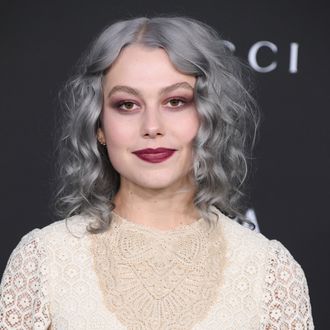
Update November 9: A judge has granted Phoebe Bridgers’ motion to strike the defamation suit against her. Citing anti-SLAPP laws, the judge ruled that Bridgers’ Instagram stories were protected speech. “We feel vindicated that the Court recognized this lawsuit as frivolous and without merit,” a spokesperson for Bridgers said in a statement. “It was not grounded in law, or facts, but was filed with the sole intention of causing harm to our client’s reputation and career. This victory is important not just for our client but for all those she was seeking to protect by using her platform.”
Original story follows.
Phoebe Bridgers has responded to the defamation lawsuit first filed against her months ago. Chris Nelson, a producer, sued Bridgers last September for $3.8 million, claiming she defamed him through comments made on Instagram attesting to his alleged abusive behavior. Bridgers did not comment on the lawsuit at the time, but has now filed to strike the lawsuit, alongside a declaration standing by her Instagram comments. In filings obtained by Vulture, Bridgers’s team cited California’s anti-SLAPP statute, which protects against speech in the public interest, such as speaking out on sexual assault and abuse, in motioning to strike the lawsuit. Central to the motion is the claim that Nelson is a public figure, who Bridgers’s team said “voluntarily interjected himself into this dispute.” Rolling Stone first reported news of the response.
Nelson sued Bridgers over an October 2020 Instagram Story, in which Bridgers posted about claims made on Instagram by Emily Bannon, a voice actor. Bannon made a range of allegations against Nelson, the owner of the Los Angeles studio Sound Space, including that he harassed and abused women and engaged in hate-crime violence. Bridgers posted in response that she could “personally verify much of the abuse” Bannon attested to. Nelson claimed that he previously dated Bannon, that they later became involved with Bridgers, and that when he and Bannon broke up, she continued to date Bridgers. Nelson previously filed a lawsuit against Bannon in December 2020.
In her declaration, Bridgers said while she did not help write Bannon’s posts, she believes them. “I believe that the statements I made in my Instagram story are true,” Bridgers said in the filing. “My statements were made based on my personal knowledge, including statements I personally heard Mr. Nelson make, as well as my own observations. I continue to believe the statements that I made were true.”
Nelson brought a similar lawsuit against Noël Wells, the former Saturday Night Live cast member and singer-songwriter. Wells allegedly warned the band Big Thief about working with Nelson in a private email, claiming the producer had made “an incredibly predatory move” in their collaborations, per Rolling Stone. A judge dismissed Nelson’s lawsuit against Wells in January, ruling that Wells’s speech fell under her First Amendment rights “in the advancement or assistance of the creation of music.”


